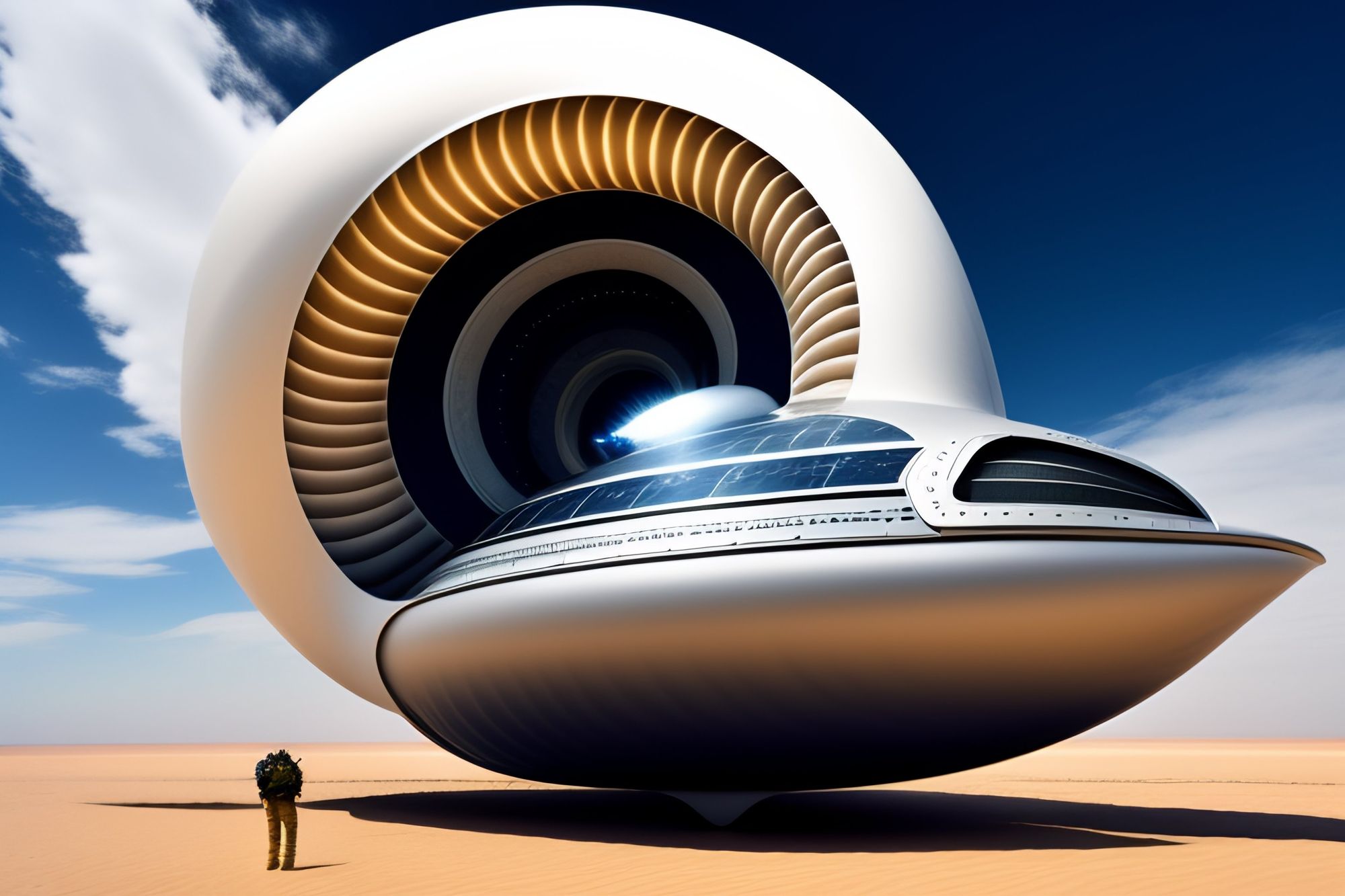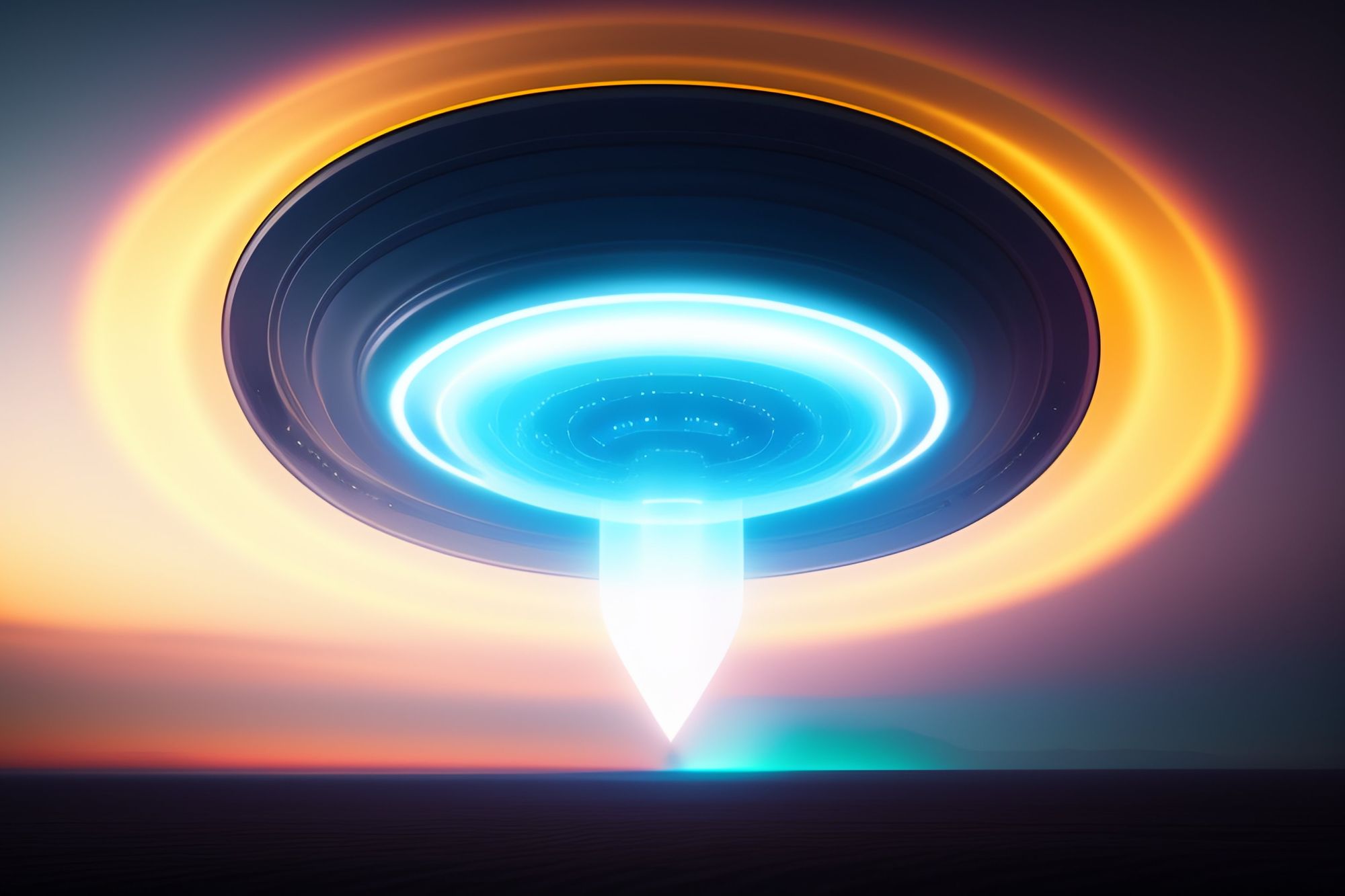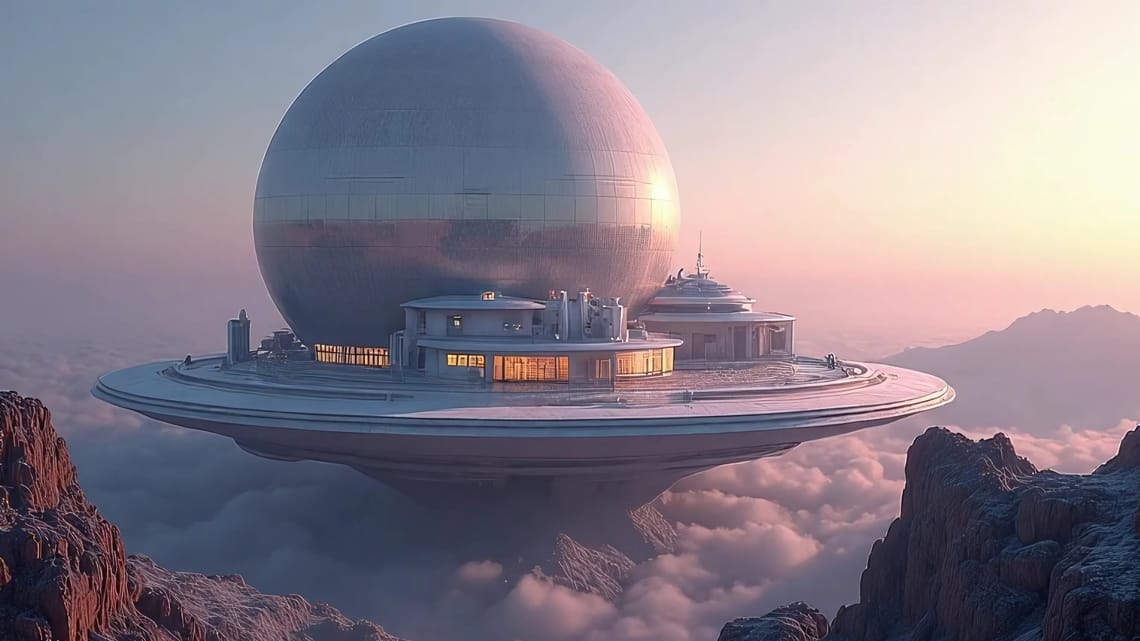Faster-than-light travel is a staple of science fiction, allowing characters to journey across vast distances of space in a matter of seconds or hours. But what many people don't realize is that this type of travel would have some mind-bending effects on our perception of time. In this article posted by Digital Marketing Legend "Srinidhi Ranganathan" and AI Veteran "Mr. Mohan Leela Shankar", we'll explore the concept of time dilation in sci-fi, how it's portrayed in popular movies and TV shows, and what it would actually mean for us if we were able to travel faster than the speed of light.
From the classic Star Trek franchise to the recent blockbuster Interstellar, we'll examine the science behind time dilation and explore the implications it could have for our understanding of the universe.
Get ready for a mind-bending ride through the world of science fiction!

Introduction: What is time dilation and its role in science fiction
Science fiction has always been known for its ability to push the boundaries of our imagination. One fascinating concept that often emerges in the genre is time dilation, a mind-bending phenomenon that defies the laws of physics as we understand them. In simple terms, time dilation refers to the discrepancy in the passage of time between two different observers, caused by differences in velocity or gravitational forces.
In the realm of science fiction, time dilation plays a crucial role in creating captivating narratives and exploring the consequences of faster-than-light travel. This concept allows writers to delve into the fascinating possibilities of time travel, alternate dimensions, and parallel universes.
Time dilation is often portrayed as a consequence of travelling at speeds exceeding the speed of light, a feat that remains purely theoretical in reality. However, in the realm of science fiction, authors have envisioned advanced technologies and imaginary propulsion systems that enable characters to traverse vast distances in the blink of an eye.
The implications of time dilation in science fiction are vast and mind-boggling. Characters can experience time passing at different rates depending on their relative velocities or proximity to massive celestial objects. This leads to intriguing plot twists, paradoxes, and philosophical questions about the nature of time itself.
Furthermore, time dilation allows authors to explore the emotional and psychological effects on those who experience it. Imagine a protagonist returning from a journey to find that centuries have passed on Earth while they have barely aged. The sense of displacement, loss, and disconnection from the world they once knew can create compelling narratives filled with longing, nostalgia, and a profound sense of alienation.
From classic works such as H.G. Wells' "The Time Machine" to modern masterpieces like Christopher Nolan's "Interstellar," the concept of time dilation continues to captivate audiences and fuel their imaginations. It serves as a gateway to explore complex scientific concepts while simultaneously igniting our sense of wonder and curiosity about the mysteries of the universe.
In this article, we will delve deep into the intricacies of time dilation as portrayed in science fiction literature, films, and television shows. We will explore the various interpretations, implications, and creative possibilities that arise when time itself becomes malleable. So fasten your seatbelts and prepare for a mind-bending journey through the fascinating world of time dilation in science fiction.
The Theory of Relativity: Understanding the basis of time dilation
In order to grasp the mind-bending effects of faster-than-light travel in science fiction, it is crucial to understand the theory of relativity, which forms the basis of time dilation. Developed by Albert Einstein in the early 20th century, the theory of relativity revolutionized our understanding of space, time, and the relationship between them.
According to the theory, there are two main components: the special theory of relativity and the general theory of relativity. The special theory of relativity focuses on objects moving at constant speeds relative to each other, while the general theory of relativity takes into account the effects of gravity and acceleration.
One of the most intriguing aspects of the special theory of relativity is the concept of time dilation. Simply put, time dilation occurs when an object moves at speeds close to the speed of light. As an object's velocity increases, time slows down for that object relative to a stationary observer.
To illustrate this phenomenon, let's imagine a spaceship travelling at an incredibly high velocity, nearing the speed of light. According to the theory of relativity, time for the occupants of the spaceship would appear to pass more slowly compared to an observer on Earth. This means that while the astronauts may experience a few days, weeks, or even years during their journey, centuries might have passed for those left behind on Earth.
This notion of time dilation has been widely explored in science fiction, fueling the imagination of authors, filmmakers, and fans alike. It allows for the possibility of interstellar travel, where space explorers can venture into distant galaxies while experiencing only a fraction of the time passing on Earth.
While faster-than-light travel remains purely speculative in reality, the theory of relativity and its concept of time dilation offer a fascinating framework for exploring the limitless possibilities of science fiction. By delving into this theory, we can begin to appreciate the mind-bending effects of faster-than-light travel depicted in the realms of our favourite sci-fi stories.
Time dilation in popular science fiction works
Time dilation is a mind-bending concept that has captured the imagination of science fiction writers for decades. In popular science fiction works authors have explored the fascinating consequences of faster-than-light travel on the passage of time.
One of the most iconic examples of time dilation in science fiction can be found in the renowned novel "Dune" by Frank Herbert. In this epic tale, interstellar travel is made possible through the use of spice, a substance that allows spaceships to fold space and travel vast distances instantaneously.
However, the cost of this incredible technology is the dilation of time. As characters journey through space, years or even decades may pass on distant planets while only a short period of time elapses for those aboard the spaceship. This creates a stark contrast between the experiences of different individuals and adds a layer of complexity to the narrative.
Another remarkable depiction of time dilation can be seen in Christopher Nolan's film "Interstellar." The story follows a group of astronauts who embark on a mission to find a habitable planet in a distant galaxy. Due to the immense distances involved, they must utilize a wormhole to travel quickly. However, the effects of gravity and the proximity to a black hole lead to significant time dilation. As a result, the crew members experience the passage of time at different rates, leading to profound emotional and plot twists.
The concept of time dilation in science fiction not only serves as a plot device but also carries deeper implications. It explores the fundamental nature of time and the human perception of its flow. Through these narratives, authors and filmmakers challenge our understanding of time and push the boundaries of imagination.
Whether it's travelling through space or encountering anomalies that bend the laws of physics, time dilation in science fiction works has captivated audiences and sparked endless discussions. It offers a glimpse into a world where the fabric of time is malleable, inviting us to ponder the mysteries of the universe and question our own place within it.
Time dilation and its impact on space exploration narratives
Time dilation, a fascinating concept rooted in the theory of relativity, has captivated the imaginations of science fiction writers for decades. In the realm of space exploration narratives, time dilation serves as a powerful storytelling tool, allowing authors to explore the mind-bending consequences of faster-than-light travel.
Imagine a crew embarking on an interstellar journey, travelling at velocities surpassing the speed of light. As they venture deeper into the cosmos, they experience a dramatic time-dilation effect. While only a few years may pass for the crew, decades or even centuries elapse for those left behind on Earth.
This fundamental discrepancy in the passage of time creates a unique narrative dynamic. The crew becomes detached from the world they once knew, witnessing the evolution of societies, technologies, and even the very fabric of human existence. They become stranded in a future that is unfamiliar and, at times, hostile.
Conversely, their loved ones on Earth age rapidly, becoming distant memories or fading echoes of the past. The emotional toll of this separation, the yearning for connection, and the sense of isolation create rich storytelling opportunities. Authors can explore themes of loss, sacrifice, and the fragility of human relationships in a universe where time itself becomes a formidable adversary.
Furthermore, time dilation allows for intriguing plot twists and paradoxes. The crew may encounter their own descendants or encounter civilizations that have risen and fallen in the span of their journey. The implications of time dilation extend beyond the individual experiences of the characters, touching upon the very nature of reality and our place in the universe.
In science fiction, time dilation provides a canvas for exploration, both literally and metaphorically. It raises profound questions about the nature of time, the limitations of human perception, and the consequences of traversing the vast cosmic expanse. By delving into the mind-bending effects of faster-than-light travel, authors can transport readers to a realm where the boundaries of time and space blur, challenging our understanding of the universe and our place within it.

Conclusion: The fascination and appeal of time dilation in sci-fi literature and media
Time dilation has long captivated the human imagination, and its portrayal in sci-fi literature and media only adds to its allure. The concept of faster-than-light travel and the accompanying time-dilation effects have become a staple in science fiction, intriguing audiences and sparking endless discussions and debates.
One of the reasons time dilation in science fiction is so fascinating is its mind-bending nature. The idea that time can be distorted, manipulated, and experienced differently depending on one's speed or proximity to massive objects challenges our conventional understanding of the universe. It opens up a realm of possibilities where characters can travel to distant galaxies, experience different eras, and even encounter their future or past selves.
Sci-fi literature and media have utilized time dilation to explore complex themes such as the nature of time, the consequences of tampering with temporal mechanics, and the philosophical implications of time travel. It allows storytellers to delve into the intricacies of causality, paradoxes, and the consequences of altering the timeline. The fascination lies not only in the scientific aspects but also in the ethical and moral dilemmas that arise from manipulating time.
Moreover, time dilation in sci-fi serves as a vehicle for escapism and imagination. It transports readers and viewers to worlds where the boundaries of time are pushed, and reality is stretched beyond comprehension. It invites us to contemplate the vastness of the universe and our place within it, igniting a sense of wonder and awe.
In conclusion, time dilation in sci-fi literature and media holds an undeniable fascination and appeal. Its ability to warp our understanding of time, explore complex concepts, and transport us to unimaginable realms makes it a captivating element of the genre. Whether it's in the form of interstellar travel, time loops, or alternate timelines, the mind-bending effects of time dilation continue to captivate and inspire audiences, keeping the allure of sci-fi alive and thriving.
In conclusion, the concept of time dilation in the realm of faster-than-light travel in science fiction is truly mind-bending. It opens up a world of possibilities and allows us to explore the limits of our understanding of time and space. While it may be purely fictional at this point, the imaginative and thought-provoking ideas presented in sci-fi stories can spark curiosity and push the boundaries of scientific exploration.
Whether it's travelling to distant galaxies or unravelling the mysteries of time itself, the concept of time dilation captivates our imagination and reminds us that the universe is full of wonders yet to be discovered. So, next time you pick up a sci-fi book or watch a movie, prepare to be transported to a world where time is no longer a linear constraint, but a fascinating phenomenon that bends and distorts our perception in unimaginable ways.

Check out our incredible courses, books and content from Bookspotz:



















